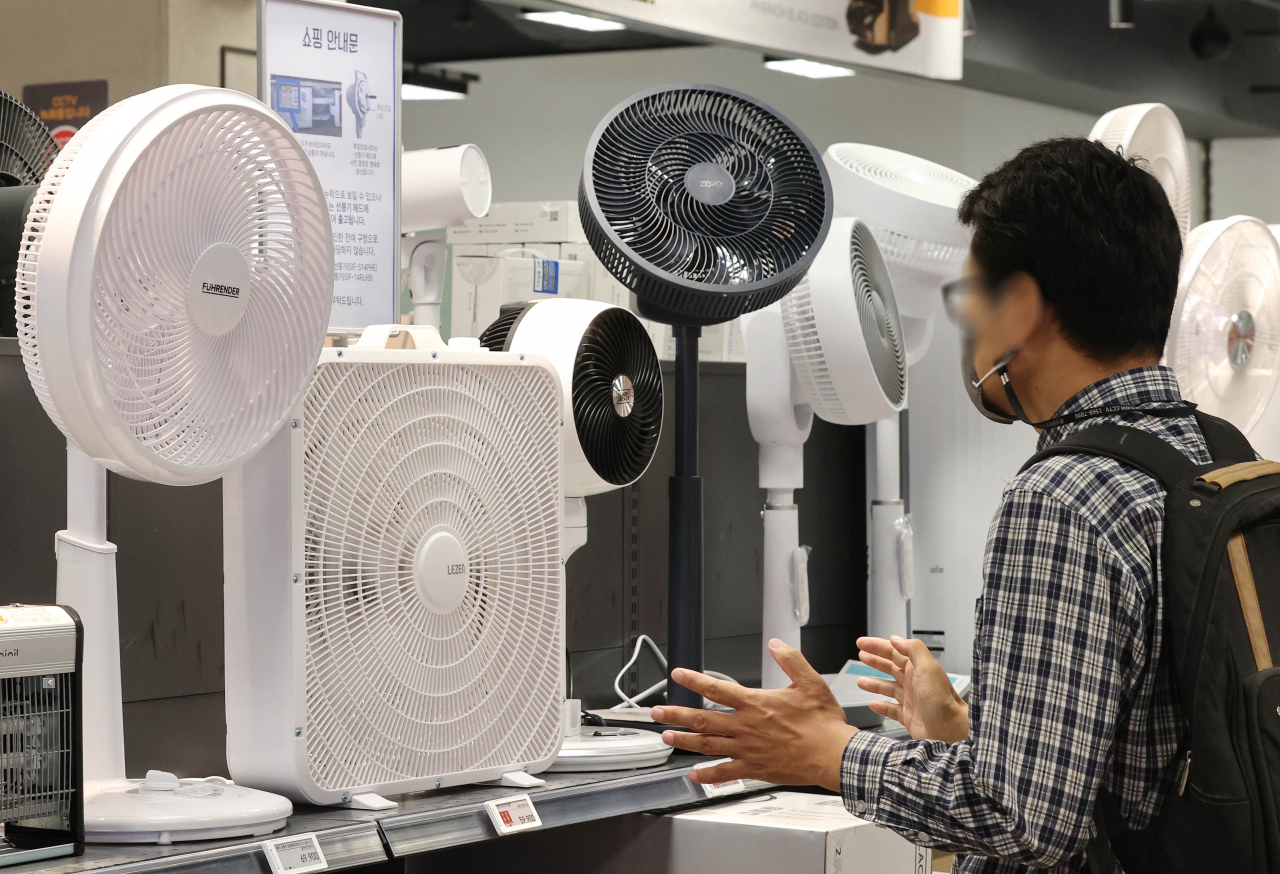
South Korea's inflation expectations fell to the lowest in a year in May on a slide in prices of petrochemical goods, a central bank survey showed Tuesday.
Ordinary people expected consumer prices to rise 3.7 percent for the year ahead, down 0.2 percentage point from what was surveyed a month earlier, according to the poll conducted by the Bank of Korea.
The reading marks the lowest since May last year, when the comparable figure was 3.3 percent, the central bank said.
The downturn came as the prices of oil-related goods continued to fall, according to the central bank.
The figures are closely watched, as their upward move could cause businesses to raise prices and people to ask for pay raises, thereby resulting in more upward pressure on inflation going forward.
South Korea's consumer prices grew at the slowest pace in more than a year in April in the latest signal that inflation has receded.
Consumer prices, a key gauge of inflation, rose 3.7 percent last month from a year earlier, compared with a 4.2 percent on-year rise in March, marking the first time in 14 months that the on-year inflation growth fell below 4 percent.
The BOK held its key rate steady at 3.5 percent last month after a rate freeze in February, as inflation appears to be easing and concerns are rising over an economic slowdown.
The central bank is scheduled to hold its monetary policy meeting later this week and may face the daunting task of whether to freeze the rate again or raise it.
It is expected to stand pat again amid easing inflation and a slowdown in economic growth. (Yonhap)




![[Herald Interview] 'Amid aging population, Korea to invite more young professionals from overseas'](http://res.heraldm.com/phpwas/restmb_idxmake.php?idx=644&simg=/content/image/2024/04/24/20240424050844_0.jpg&u=20240424200058)












![[KH Explains] Korean shipbuilding stocks rally: Real growth or bubble?](http://res.heraldm.com/phpwas/restmb_idxmake.php?idx=652&simg=/content/image/2024/04/25/20240425050656_0.jpg&u=)

